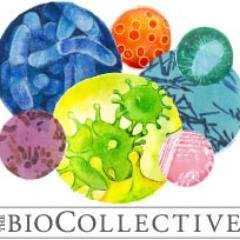Author Interviews, Johns Hopkins, Microbiome, Probiotics, Schizophrenia / 10.04.2017
Probiotics May Influence Schizophrenia Symptoms Through Yeast in Microbiome
MedicalResearch.com Interview with:
 Emily G. Severance PhD
Stanley Division of Developmental Neurovirology
Department of Pediatrics
Johns Hopkins University School of Medicine
Baltimore, MD 21287
MedicalResearch.com: What is the background for this study? What are the main findings?
Response: Previously, we found that people with schizophrenia and bipolar disorder had an increased susceptibility to Candida albicans yeast infections, which was sex specific and associated with memory deficits. Also in an earlier placebo-controlled probiotic study, we found that although probiotics improved the overall bowel function of people with schizophrenia, there was no effect by this treatment on psychiatric symptoms. Given that C. albicans infections can upset the dynamics of the human microbiome, we decided to re-evaluate the potential benefit of probiotics in the context of a patient’s C. albicans yeast status. Not only was bowel function again enhanced following intake of probiotics, but yeast antibody levels were decreased by this treatment.
Furthermore, psychiatric symptoms were actually improved over time for men receiving probiotics who did not have elevated C. albicans antibodies. Men who were positive for C. albicans exposure, however, consistently presented with worse psychiatric symptoms irrespective of probiotic or placebo treatment.
(more…)
Emily G. Severance PhD
Stanley Division of Developmental Neurovirology
Department of Pediatrics
Johns Hopkins University School of Medicine
Baltimore, MD 21287
MedicalResearch.com: What is the background for this study? What are the main findings?
Response: Previously, we found that people with schizophrenia and bipolar disorder had an increased susceptibility to Candida albicans yeast infections, which was sex specific and associated with memory deficits. Also in an earlier placebo-controlled probiotic study, we found that although probiotics improved the overall bowel function of people with schizophrenia, there was no effect by this treatment on psychiatric symptoms. Given that C. albicans infections can upset the dynamics of the human microbiome, we decided to re-evaluate the potential benefit of probiotics in the context of a patient’s C. albicans yeast status. Not only was bowel function again enhanced following intake of probiotics, but yeast antibody levels were decreased by this treatment.
Furthermore, psychiatric symptoms were actually improved over time for men receiving probiotics who did not have elevated C. albicans antibodies. Men who were positive for C. albicans exposure, however, consistently presented with worse psychiatric symptoms irrespective of probiotic or placebo treatment.
(more…)
 Emily G. Severance PhD
Stanley Division of Developmental Neurovirology
Department of Pediatrics
Johns Hopkins University School of Medicine
Baltimore, MD 21287
MedicalResearch.com: What is the background for this study? What are the main findings?
Response: Previously, we found that people with schizophrenia and bipolar disorder had an increased susceptibility to Candida albicans yeast infections, which was sex specific and associated with memory deficits. Also in an earlier placebo-controlled probiotic study, we found that although probiotics improved the overall bowel function of people with schizophrenia, there was no effect by this treatment on psychiatric symptoms. Given that C. albicans infections can upset the dynamics of the human microbiome, we decided to re-evaluate the potential benefit of probiotics in the context of a patient’s C. albicans yeast status. Not only was bowel function again enhanced following intake of probiotics, but yeast antibody levels were decreased by this treatment.
Furthermore, psychiatric symptoms were actually improved over time for men receiving probiotics who did not have elevated C. albicans antibodies. Men who were positive for C. albicans exposure, however, consistently presented with worse psychiatric symptoms irrespective of probiotic or placebo treatment.
(more…)
Emily G. Severance PhD
Stanley Division of Developmental Neurovirology
Department of Pediatrics
Johns Hopkins University School of Medicine
Baltimore, MD 21287
MedicalResearch.com: What is the background for this study? What are the main findings?
Response: Previously, we found that people with schizophrenia and bipolar disorder had an increased susceptibility to Candida albicans yeast infections, which was sex specific and associated with memory deficits. Also in an earlier placebo-controlled probiotic study, we found that although probiotics improved the overall bowel function of people with schizophrenia, there was no effect by this treatment on psychiatric symptoms. Given that C. albicans infections can upset the dynamics of the human microbiome, we decided to re-evaluate the potential benefit of probiotics in the context of a patient’s C. albicans yeast status. Not only was bowel function again enhanced following intake of probiotics, but yeast antibody levels were decreased by this treatment.
Furthermore, psychiatric symptoms were actually improved over time for men receiving probiotics who did not have elevated C. albicans antibodies. Men who were positive for C. albicans exposure, however, consistently presented with worse psychiatric symptoms irrespective of probiotic or placebo treatment.
(more…)
 Martha Carlin
Founder of The BioCollective
MedicalResearch.com Editor’s Note: In recognition of the National Microbiome Initiative (NMI) announced by the White House Office of Science and Technology Policy, Martha Carlin, founder of the The BioCollective, discussed this research effort for the readers of MedicalResearch.com.
‘The BioCollective, is a direct-to-consumer microbiome marketplace where members receive a percentage of revenue from microbiome sample sales to scientists. By becoming a member of The BioCollective, individuals help advance microbiome research and learn about their own microbiome along the way.’
MedicalResearch.com: Would you tell us a little about yourself? How did you become interested in microbiomes?
Martha Carlin: My husband was diagnosed with Parkinson’s Disease (PD) in 2002. At the time, John was 44 years old, a marathon runner and life-long athlete. He had always been healthy. We were both perplexed by both his diagnosis and wanted to do everything we could to maintain his quality of life as well as hinder the progression of the disease.
Although I did not have a scientific background, I began studying the many fields of science so that I could piece together my observations of his health and his life history in my search for answers.
After reading Dr. Martin Blaser’s Missing Microbes in 2014, I later connected it to Dr. Filip Scheperjans’ research showing a correlation between the presence or absence of specific gut bacteria and symptoms in Parkinson’s Disease. This accelerated my research and led me to Dr. Jack Gilbert at the University of Chicago who later became one of my co-founders. I started working with Jack on sequencing samples and learning more about the field of microbiome research. From this work, we saw a need for samples to accelerate the research and founded The BioCollective with our third co-founder, Dr. Suzanne Vernon.
MedicalResearch.com: Can you briefly explain what a microbiome is? Does it just refer to the organisms in our intestines or are there other microbiomes? Are microbiomes unique to an individual or a community?
Martha Carlin: The microbiome is the sum total of microbial life in your body - the bacteria, archaea, fungi and viruses that call you home. There are 100 trillion microbial cells in your body, and they collectively can influence your health in profound ways. The possibilities in microbiome research are exciting. It has the potential to create technologies as revolutionary as probiotics to prevent obesity and allergies; “living” buildings that reduce the spread of viruses or allergens in schools and offices; personalized diets to treat depression; growth-promoting animal feed that eliminates the need for growth-promoting antibiotics; bacteria to reduce methane production in cows and flooded soils; plant-microbiome interactions that suppress disease and improve productivity, and bacterial cocktails that restore the health of damaged aquatic ecosystems ranging from streams to oceans.
Martha Carlin
Founder of The BioCollective
MedicalResearch.com Editor’s Note: In recognition of the National Microbiome Initiative (NMI) announced by the White House Office of Science and Technology Policy, Martha Carlin, founder of the The BioCollective, discussed this research effort for the readers of MedicalResearch.com.
‘The BioCollective, is a direct-to-consumer microbiome marketplace where members receive a percentage of revenue from microbiome sample sales to scientists. By becoming a member of The BioCollective, individuals help advance microbiome research and learn about their own microbiome along the way.’
MedicalResearch.com: Would you tell us a little about yourself? How did you become interested in microbiomes?
Martha Carlin: My husband was diagnosed with Parkinson’s Disease (PD) in 2002. At the time, John was 44 years old, a marathon runner and life-long athlete. He had always been healthy. We were both perplexed by both his diagnosis and wanted to do everything we could to maintain his quality of life as well as hinder the progression of the disease.
Although I did not have a scientific background, I began studying the many fields of science so that I could piece together my observations of his health and his life history in my search for answers.
After reading Dr. Martin Blaser’s Missing Microbes in 2014, I later connected it to Dr. Filip Scheperjans’ research showing a correlation between the presence or absence of specific gut bacteria and symptoms in Parkinson’s Disease. This accelerated my research and led me to Dr. Jack Gilbert at the University of Chicago who later became one of my co-founders. I started working with Jack on sequencing samples and learning more about the field of microbiome research. From this work, we saw a need for samples to accelerate the research and founded The BioCollective with our third co-founder, Dr. Suzanne Vernon.
MedicalResearch.com: Can you briefly explain what a microbiome is? Does it just refer to the organisms in our intestines or are there other microbiomes? Are microbiomes unique to an individual or a community?
Martha Carlin: The microbiome is the sum total of microbial life in your body - the bacteria, archaea, fungi and viruses that call you home. There are 100 trillion microbial cells in your body, and they collectively can influence your health in profound ways. The possibilities in microbiome research are exciting. It has the potential to create technologies as revolutionary as probiotics to prevent obesity and allergies; “living” buildings that reduce the spread of viruses or allergens in schools and offices; personalized diets to treat depression; growth-promoting animal feed that eliminates the need for growth-promoting antibiotics; bacteria to reduce methane production in cows and flooded soils; plant-microbiome interactions that suppress disease and improve productivity, and bacterial cocktails that restore the health of damaged aquatic ecosystems ranging from streams to oceans.